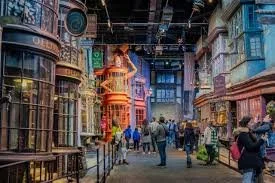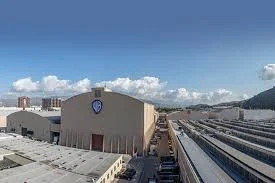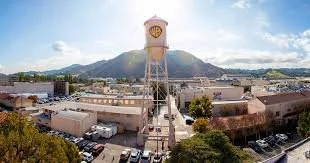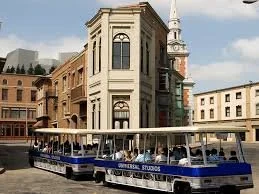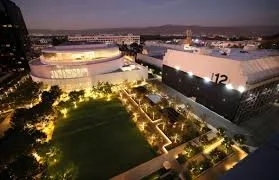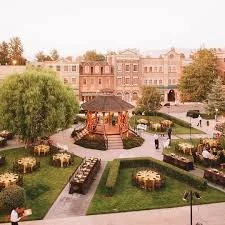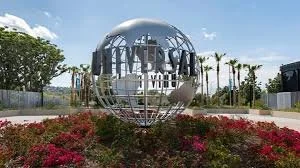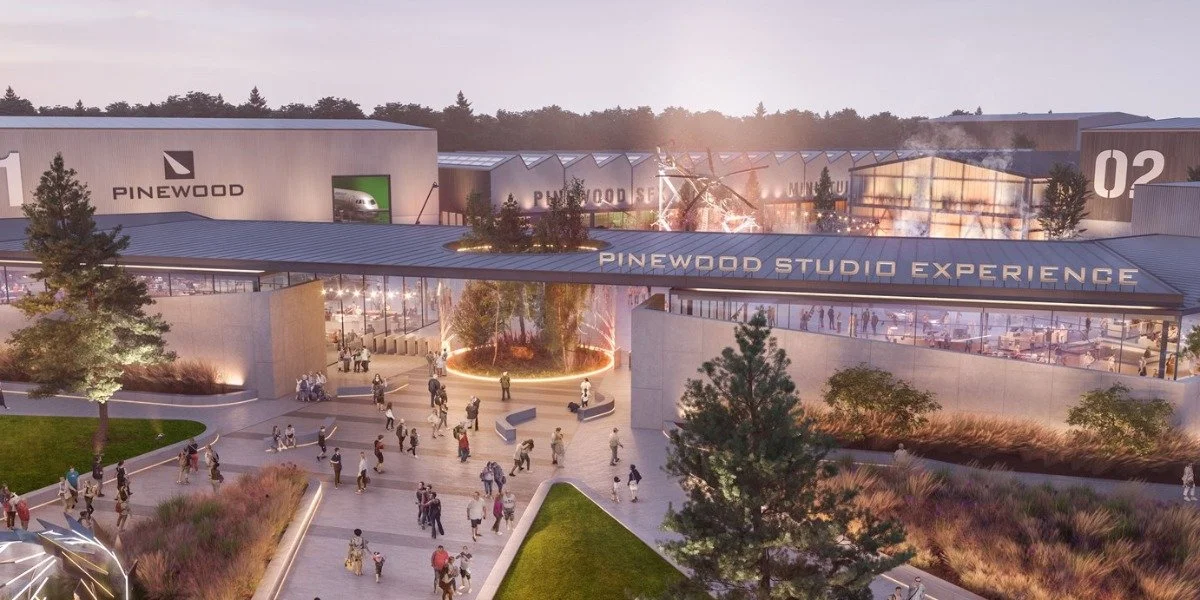What Is a Sound Stage?
And Why Jamaica Deserves One?
The famous “I love Lucy” Sound stage
A sound stage might not sound like a big deal to most people. But for filmmakers, producers, stylists, photographers, and creatives in general, it’s everything. A sound stage is a large, controlled indoor filming space where entire worlds are built. Unlike outdoor locations, a sound stage gives creators full control over lighting, sound, weather, and time of day everything you’d otherwise be at the mercy of on a regular day.Think of it as a giant blank canvas that lets you dream without limits.As someone who not only produces music but also works as a model and actress in the U.S., I’ve been on a wide variety of sets and locations from small guerrilla-style shoots to full-scale productions with hundreds of people on-site. That’s where I saw firsthand what true creative infrastructure looks like, and how much of it we’re missing at home here in Jamaica.What Makes a Sound Stage So Special?
Warner Bros. Studios (Burbank, California)
One of the oldest and most iconic production facilities in the U.S., Warner Bros. Studios spans over 110 acres and includes more than 30 sound stages. Among them is the famous Stage 16, nearly 100 feet tall and equipped with an 800,000-gallon water tank used for aquatic scenes.Famous projects filmed here: Friends, The Big Bang Theory, The Batman, Ocean’s Eleven, Inception, ER, and many more.What makes it unique: It blends legacy with modern production and still supports everything from sitcoms to action blockbusters.Universal Studios Hollywood (California)
Universal Studios Hollywood covers around 415 acres, making it one of the largest and most multifunctional entertainment sites in the world. It’s home to fully equipped sound stages, backlots, office spaces, costume and prop departments, and also houses a full-scale theme park.Famous productions: Fast & Furious, Jurassic Park, The Voice, Despicable Me, and countless others.What makes it unique: It’s a working studio and a global tourist attraction, proving that sound stages and film infrastructure can fuel both industry and tourism.Fun fact: It’s one of the oldest active studios in the world, with its roots dating back to 1912.Pinewood Studios (Buckinghamshire, UK)
Pinewood Studios sits on over 280 acres just outside of London and is synonymous with high-end global film production. It’s home to the iconic 007 Stage, one of the largest sound stages in the world at 59,000+ square feet, and is a favorite for blockbuster-level storytelling.Notable productions: James Bond, Star Wars, Harry Potter, The Crown, and multiple Marvel films.What makes it unique: It’s a go-to destination for complex, world-building projects from action and sci-fi to fantasy and includes permanent backlots, water filming stages, and world-class post-production facilities.Tyler Perry Studios (Atlanta, Georgia)
Owned by media mogul Tyler Perry, this is one of the largest Black-owned studios in the world. Built on a former Confederate army base, it now spans 330 acres and includes 12 sound stages, a replica White House, jail, airplane hangar, and full neighborhoods.Famous projects: Black Panther, Coming 2 America, The Oval, Madea films, Zatima, and various BET+ and Netflix productions.Why it matters: Tyler Perry Studios showed the world what’s possible when a creative builds infrastructure not just for themselves, but for an entire generation.And Yet… There Are No Sound Stages in Jamaica
That’s the gap we need to talk about.Jamaica has been the backdrop for so many iconic films and music videos. From early cult classics like: "Shottas", "The Harder They Come" to Hollywood blockbusters like "No Time to Die", "Knight and Day", "How Stella Got Her Groove Back", "Cocktail", "Cool Runnings", and even "Pirates of the Caribbean: The Curse of the Black Pearl", our island has helped sell stories, characters, and worlds.We’ve provided the energy, the aesthetic, and the cinematic beauty. But we’ve rarely had the tools to own or scale that impact from our side of the lens.There are no full-scale, purpose-built sound stages in Jamaica. None equipped for multi-set, year-round productions. And that means Jamaican filmmakers, producers, stylists, and crews must either compromise or leave to create at a global level.This Isn’t Just About Film. It’s About Freedom
As a music producer, creative director, label founder, and someone who’s worked both behind and in front of the camera, I see how much potential exists across Jamaica and the Caribbean. We are not short on talent. We are short on infrastructure and individuals building for the people.That’s why I’m developing The Complex, a multi-acre creative hub in Jamaica that merges music, film, wellness, content production, and co-working in one centralized space.It’s still in development, but the goal is clear:
Create jobs.Support creators.Build something sustainable that allows more of our stories to be told on our own terms.This kind of project could bring hundreds, even thousands of jobs to Jamaica. Jobs that aren’t limited to tourism or hotels. Jobs for stylists, set designers, lighting techs, writers, editors, DOPs, producers, event crews, makeup artists, musicians, sound engineers, and more.The Caribbean Deserves More
A sound stage is more than just a space.It’s a statement.It says, “We believe our stories are worth telling and worth investing in.”I’m tired of seeing Jamaican creatives fly out to shoot their biggest work elsewhere. I’m tired of seeing our cities and coasts dressed up for international projects but not for our own. And I know I’m not the only one.Jamaica is more than a backdrop.
We’re the main story.
And it’s time we built the infrastructure to prove it.

